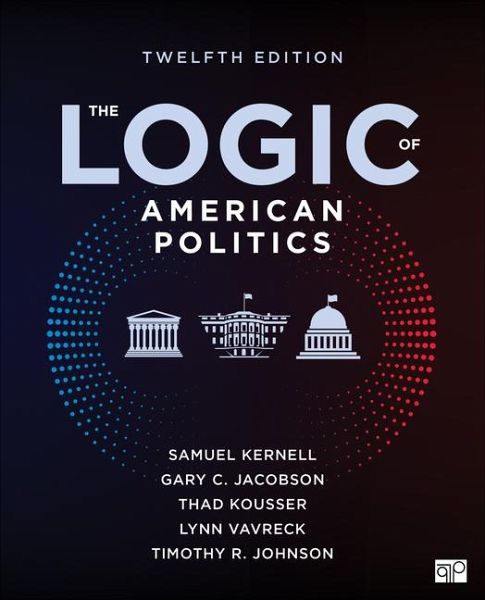Nicht lieferbar

The Logic of American Politics
Versandkostenfrei!
Nicht lieferbar
"For the first time since Grover Cleveland did so in 1892, a presidential candidate who lost reelection, won in a second attempt. Donald Trump's second White House victory and the Republicans's ability to hold the Senate and House during the 2024 election cycle highlights the seeming, illogic of American politics. In short, over the past eight years, America's politics appears to be in tumult-elections are closer than ever, turning on tens of thousands of votes in a few states, and the parties are taking turns winning The White House and Congress. While these outcomes may look capricious-and i...
"For the first time since Grover Cleveland did so in 1892, a presidential candidate who lost reelection, won in a second attempt. Donald Trump's second White House victory and the Republicans's ability to hold the Senate and House during the 2024 election cycle highlights the seeming, illogic of American politics. In short, over the past eight years, America's politics appears to be in tumult-elections are closer than ever, turning on tens of thousands of votes in a few states, and the parties are taking turns winning The White House and Congress. While these outcomes may look capricious-and illogical-what you'll read in the pages to come suggests a logic that takes a keen eye to appreciate. It is a logic you will appreciate at the end of this course. Obviously, assessment of the extraordinary 2024 election is a major topic of Chapter 11's coverage of voting and elections. Sizing up Biden's term and what we may expect in the second Trump term occupies much of the attention of Chapter 7 on the presidency. In both, we seek to square the Trump-Biden-Trump years with the stable systematic forces at work in both elections and governance. This mission pervades every other chapter as well. We close Chapter 2 ("The Constitution") by considering whether the separation of powers, as envisioned by the constitution, still functions as intended. In a world where presidents issue executive orders instead of working with Congress to achieve goals-and where the Supreme Court is willing to forgo precedent-how well do checks and balances work? Chapter 3's coverage of federalism explores whether states have become the place to experiment with policy-and what it means for states to have different policies on rights like access to abortion and reproductive care, on gun rights, on marijuana legalization, and on immigration enforcement. Chapter 4 reports on the ongoing tribulations on two fronts: policing practices when dealing with minority groups and the stillunresolved Deferred Action for Childhood Arrivals (DACA) policy affecting several hundred thousand children brought into the country illegally. This chapter also considers the Supreme Court's intervention in the fight over rights for LGBTQ+ people. Chapter 5 considers the Court's sharp move to the right on issues of civil liberties and delves into its 2022 decision that overturned Roe v. Wade and, perhaps more importantly, the manner in which it has eschewed its use of precedent to decide cases it hears (which we also discuss in Chapter 9). With XXX, Chapter 6 explores new challenges to congressional leadership in a period of extraordinary partisan polarization among the mass electorate"--




